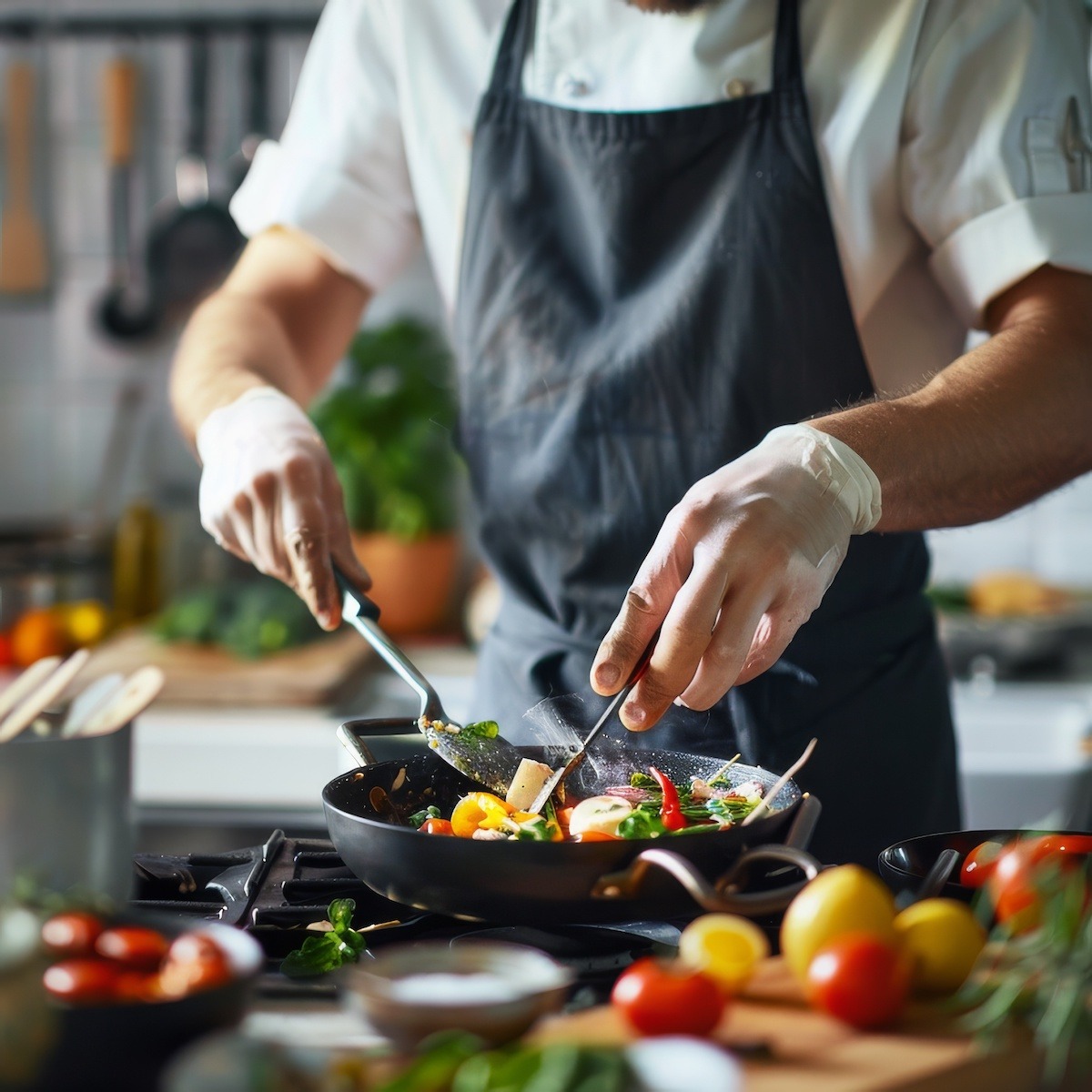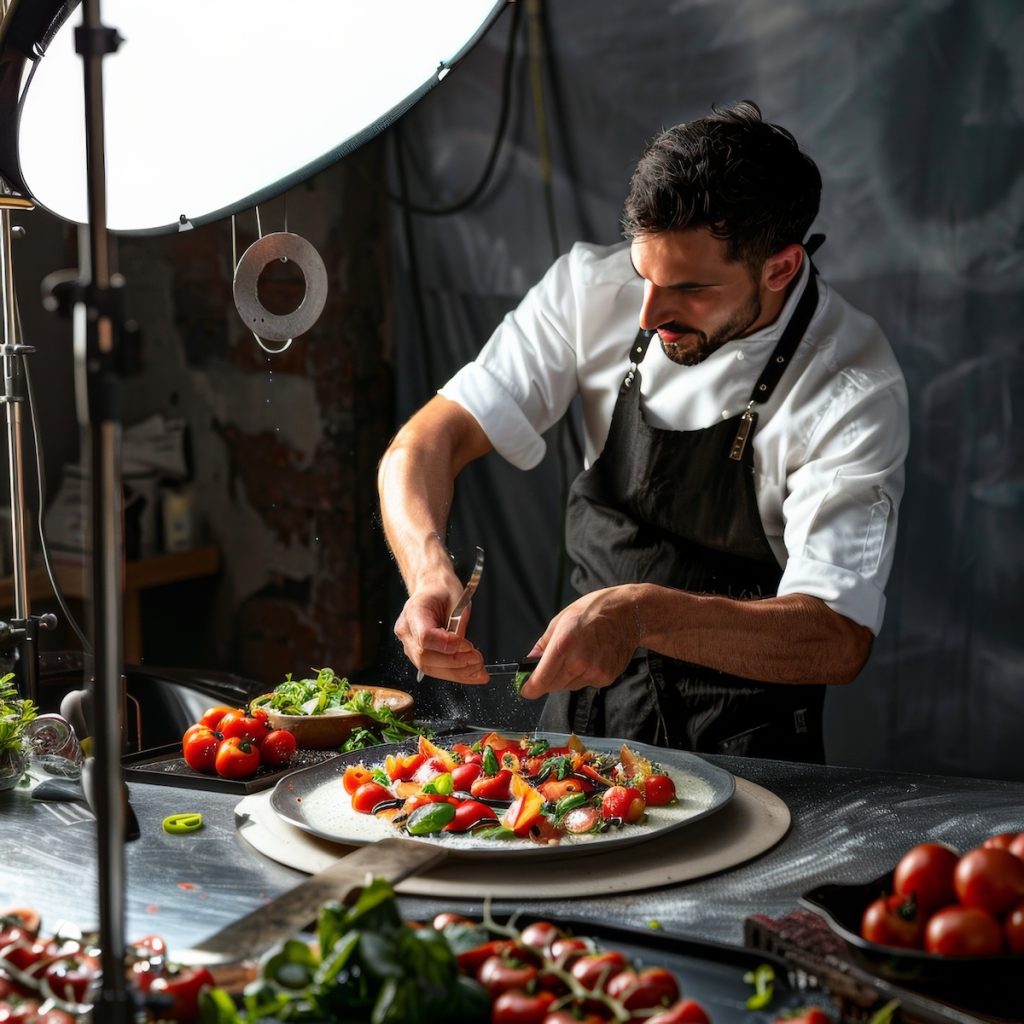What Are Some Different Types of Culinary Jobs?
Most students who have graduated from top culinary schools or cooking colleges know their career’s direction. You could start as a sous chef and work your way up through the ranks at a four-star restaurant in New York.
You may work as a line cook until you save up enough money to open your own place in downtown Seattle. In most scenarios, the end goal is the same: that prestigious Executive Chef title.
However, one of the best things about getting a good culinary education is the incredible variety of options available to you. If you finally get that culinary arts degree and aren’t quite sure if you can handle the next few years in the kitchen, here are a few positions you might want to consider:
Culinary Adventurer
Despite how it sounds, this isn’t a fictional job. Made famous by Anthony Bourdain, who travels around the world experiencing first-hand the world’s cuisines, culinary adventurers (or culinary travelers) usually work for commercial food manufacturers or retailers.
This job aims to explore foods in their natural environment, learn how to use existing exotic ingredients, and even discover new ones.
Food Writer/Photographer/Artist
These days, you can take almost any of the classical arts and put “food” in front of it to create a new kind of career. Food writers provide content for magazines and review books. Food photographers make culinary creations look good for the camera. Food artists mold, shape, and carve foods to create visually stunning pieces that are more art than cuisine.
Food Stylist
A food stylist is an artist with a keen eye for aesthetics and a knack for making food look irresistible. They meticulously arrange dishes, select the perfect props, and use clever techniques to enhance colors, textures, and shapes.
Whether working on a commercial shoot, a cookbook, or a restaurant menu, their goal is to capture the essence of a dish and make it visually stunning. Through careful styling, they transform ordinary ingredients into mouthwatering works of art, enticing viewers to crave a taste.
Flavorist
In the realm of flavor creation, flavorists are the maestros, blending science and art to craft unique taste experiences. They delve into the complexities of aroma and taste, using a palette of natural and synthetic ingredients to design flavors that tantalize the senses.
Working closely with food and beverage manufacturers, they develop formulations for products ranging from snacks and beverages to sauces and seasonings. With a deep understanding of consumer preferences and market trends, flavorists innovate to create memorable flavor profiles that captivate consumers and elevate culinary experiences.
Culinary Anthropologist
Culinary anthropologists are historians of the kitchen, exploring the cultural and social dimensions of food throughout history and across societies. They study how food shapes identity, rituals, and relationships within communities, tracing the evolution of culinary practices from ancient times to the present day.
Examining foodways, cuisines, and culinary traditions uncover insights into human behavior, migration patterns, and environmental influences. Their research illuminates the connections between food, culture, and society, offering valuable perspectives on issues such as sustainability, globalization, and food justice.
Culinary Tour Guide
As culinary ambassadors, tour guides lead epicurean adventures, guiding food enthusiasts on gastronomic journeys through vibrant food scenes and culinary destinations. They curate immersive experiences showcasing local flavors, ingredients, and culinary traditions, introducing participants to hidden gems and landmarks off the beaten path.
Whether exploring bustling markets, sampling street food delicacies, or dining at acclaimed restaurants, culinary tour guides offer insider knowledge and cultural insights that deepen appreciation for regional cuisines and food cultures. With a passion for food and a talent for storytelling, they create unforgettable culinary experiences that satisfy appetites and nourish the soul.
Recipe Developer
Recipe developers are culinary innovators, combining creativity and culinary expertise to craft recipes that inspire and delight. They experiment with ingredients, flavors, and techniques to create delicious, balanced, and visually appealing dishes. Whether working for a food publication, a culinary website, or a food brand, their goal is to create recipes that resonate with home cooks and food enthusiasts alike.
They meticulously test and refine each recipe, adjusting proportions and cooking methods to ensure consistent results. With a finger on the pulse of culinary trends and dietary preferences, recipe developers innovate to create fresh, exciting dishes that spark joy in the kitchen and at the table.
Food Scientist
At the intersection of food and science, food scientists unravel the mysteries of food composition, structure, and behavior. They apply chemistry, biology, and physics principles to understand how ingredients interact during processing, cooking, and storage. Focusing on safety, quality, and nutrition, they develop innovative solutions to enhance food products’ flavor, texture, and shelf life.
Whether researching new ingredients, optimizing production processes, or troubleshooting food-related issues, food scientists play a vital role in ensuring the integrity and safety of the food supply. Their work spans various industries, from food manufacturing and agriculture to research institutions and regulatory agencies.
Food Archaeologist
Food archaeologists dig deep into the past, uncovering culinary secrets buried beneath layers of history and sediment. They excavate ancient kitchens, hearths, and trash pits, piecing together clues from food remains, cooking vessels, and written records to reconstruct ancient diets and cooking techniques.
By analyzing plant and animal remains, they trace the origins of domesticated crops and livestock, shedding light on the agricultural practices of ancient civilizations. Food archaeologists illuminate the connections between food, culture, and society through their research, revealing how food has shaped human evolution and migration patterns over millennia.
Artisan Cheese Maker
Artisan cheese makers are masters of their craft, transforming milk into a diverse array of cheeses with skill and artistry. They draw on tradition and innovation to produce cheeses that reflect their region’s terroir, climate, and culture.
Whether crafting creamy bries, tangy cheddars, or pungent blues, artisan cheese makers take pride in every step of the cheese-making process, from sourcing high-quality milk to aging and ripening the finished product. With a deep respect for their craft and a commitment to quality, they create cheeses that are flavorful, unique, and beloved by cheese enthusiasts worldwide.
Edible Insect Farmer
Edible insect farmers are pioneers in sustainable agriculture, raising insects for human consumption as a nutritious and eco-friendly alternative to conventional livestock. They cultivate various insect species, including crickets, mealworms, and grasshoppers, using efficient farming methods that require minimal resources and produce minimal waste.
Focusing on nutrition, flavor, and safety, they carefully manage the entire insect lifecycle, from egg to adult, ensuring optimal conditions for growth and development. Whether producing whole insects for snacks and protein bars or processing insects into powders and flours for use in baked goods and pasta, edible insect farmers play a vital role in promoting sustainable food systems and addressing global food security challenges.
Molecular Gastronomist
Molecular gastronomists are culinary alchemists exploring food science at the molecular level to create innovative and provocative culinary experiences. They employ cutting-edge techniques such as sous vide, spherification, and foams to transform familiar ingredients into unexpected forms and textures.
With a blend of creativity and precision, they push the boundaries of taste and perception, challenging conventional notions of flavor, presentation, and dining. Whether experimenting with gels, emulsions, or liquid nitrogen, molecular gastronomists delight diners with whimsical and thought-provoking dishes that engage the senses and spark curiosity.
Culinary Educator
Culinary educators are passionate mentors, sharing their knowledge and expertise to inspire the next generation of chefs, cooks, and food enthusiasts. Whether teaching in culinary schools, community centers, or online platforms, they create engaging learning experiences combining hands-on instruction and theoretical knowledge.
With a focus on technique, creativity, and professionalism, culinary educators empower students to develop their culinary skills and explore their culinary passions. Whether demonstrating knife skills, leading cooking demonstrations, or guiding students through recipe development projects, they foster a culture of lifelong learning and culinary excellence.
Food Preservation Specialist
Food preservation specialists are guardians of flavor and freshness, preserving the bounty of the harvest through time-honored techniques such as canning, pickling, fermenting, and drying. They harness the power of salt, sugar, acid, and temperature to inhibit microbial growth and maintain the quality of fruits, vegetables, and meats.
Whether packing jars of homemade jams and jellies or curing meats in artisanal salumi, food preservation specialists take pride in their craft and the tradition of preserving food for future generations. Focusing on sustainability and self-sufficiency, they empower individuals and communities to reduce food waste and embrace the art of preservation.

Personal Chef
Personal chefs are culinary confidants, creating customized meals that cater to their clients’ tastes and dietary preferences. Whether cooking for busy professionals, families with dietary restrictions, or individuals with special dietary needs, they provide personalized culinary experiences that are both convenient and delicious.
From menu planning and grocery shopping to meal preparation and cleanup, personal chefs offer a range of services designed to simplify mealtime and enhance enjoyment. With a focus on quality ingredients, thoughtful preparation, and impeccable service, they forge strong relationships with their clients, becoming trusted allies in pursuing healthy, flavorful, and satisfying meals.
Urban Forager
Urban foragers are modern-day hunters and gatherers. They explore the concrete jungle in search of wild edibles that thrive amidst the hustle and bustle of city life. They scour parks, vacant lots, and urban green spaces for a bounty of wild plants, mushrooms, and herbs that can be transformed into flavorful and nutritious dishes.
Whether harvesting dandelion greens for salads, gathering elderflowers for syrups, or foraging for wild mushrooms in wooded areas, urban foragers embrace the abundance of nature surrounding them, turning overlooked weeds and plants into culinary treasures. With a deep respect for the environment and a passion for connecting with nature, urban foragers celebrate the wild flavors of the cityscape and inspire others to explore the edible wonders of their urban surroundings.
Food Waste Consultant
Food waste consultants are sustainability champions who work with businesses, organizations, and communities to reduce food waste and promote resource efficiency throughout the food supply chain. They conduct audits, analyze data, and develop strategies to minimize food waste at every production, distribution, and consumption stage.
Whether implementing inventory management systems, optimizing packaging designs, or educating consumers about food storage and preservation techniques, food waste consultants offer practical solutions that save money, help alleviate hunger, conserve natural resources, and mitigate environmental impact. With a focus on collaboration and innovation, they inspire positive change and create a more sustainable and resilient food system for future generations.












